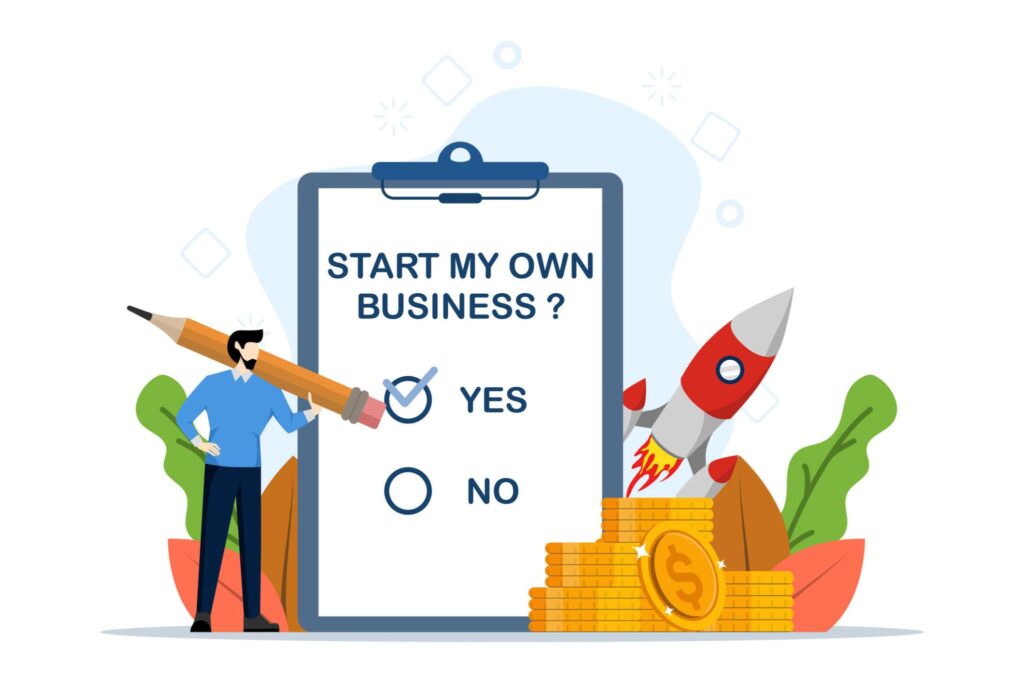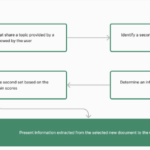You’ve probably spent hours racking your brain for a business idea that just feels right. Maybe you’ve stared at a blank page until your eyes glazed over, hoping inspiration would strike. Or perhaps you’ve filled up multiple notebooks with ideas, only to crumple up the pages in frustration. Starting a business is downright exciting, but actually coming up with that million-dollar idea? That part makes you want to tear your hair out.i want to start a business but have no ideas
The good news is you’re not alone in that stuck feeling. Most aspiring entrepreneurs hit roadblocks when trying to pinpoint the “just right” idea to turn into reality. But having a spark of inspiration is only step one. Even if you haven’t settled on the perfect concept yet, there are ways to work through the ideation process. It just takes rolling up your sleeves and diving into the not-so-glamorous work of testing, researching and validating. The business ideas will come, slowly but surely. Don’t lose hope.
Start With Yourself
The most important step in coming up with business ideas is to start with yourself. What are you passionate about? What are your interests, skills, experiences, and talents? The businesses most likely to succeed are the ones built around the founder’s passions and expertise.
Think about the subjects or activities that really excite you. Maybe you love baking, gardening, or woodworking. Perhaps you’re an expert in marketing, finance or IT. Your passion and skills are clues to potential business opportunities.
Rather than forcing yourself into a business idea that doesn’t inspire you, build on your existing interests and strengths. When you genuinely care about the work, it will motivate you through the challenges of starting a business. And because you have relevant experience or expertise, you’ll have an advantage over competitors.
Look at your job or career experience for inspiration too. If there are tasks you excel at, you may be able to turn that into a business. Or look for ways to solve common problems you encounter in your industry.
Don’t feel limited by your formal education or training. Some of the most successful business owners didn’t have a degree or certification in their industry. What matters most is real-world experience, natural talents, and a desire to continually learn and improve your skills.
Think about the issues or annoyances you deal with in your daily life. Chances are, if something bothers or inconveniences you, it probably bothers others too. Any problem you can solve for yourself and others could be an opportunity. Many thriving businesses were born simply from a desire to fix everyday problems.
The key is to know yourself—your talents, your experience, your passions, your resources, and your limitations. Then look for ways to match business opportunities to what you genuinely care about and do well. The right idea may be sitting inside you, just waiting to be uncovered. When you build a business around who you are, success is more likely to follow.
Explore Business Ideas That Might Work for You
You have so much potential for starting a successful business, you just need to find the right idea! Here are some ways to explore options and find inspiration:
- Build on your interests or hobbies. What do you love to do in your spare time? Could you turn that passion into a business? Maybe you enjoy baking, gardening or woodworking. Consider how you could offer those skills or products to others.
- Identify problems you can solve. Look for inefficiencies, frustrations or unmet needs in your daily life or industry. Coming up with a solution to a common problem is a great way to start a business. Ask friends or do some online research to validate the problem exists for others too.
- Research growing trends. Pay attention to new technologies, services or products that are emerging. The latest trends often represent opportunities for new businesses. Could you incorporate a trend into an existing industry or fill a gap? Growing trends usually mean increased demand.
- Network and get input. Tell people in your network about your goal of starting a business. Ask them for any ideas they may have based on your skills, interests or resources. You never know what valuable insights or opportunities networking may uncover. Consider a business partnership with someone who complements your abilities.
- Evaluate resources and constraints. Take an honest look at your financial and time situation. The business idea needs to be feasible for your current circumstances. If funds or time are limited, consider starting small and building up, or look at options like consulting, freelancing or online businesses with low overhead.
- Explore options like franchising. If developing an entirely new business concept feels overwhelming, franchising allows you to buy into an established brand and model. You get to run your own business but with an existing playbook and support system. Many franchises have low costs to get started.
Starting a business begins with finding the right idea for your unique skills, interests and goals. With an open and curious mindset, inspiration can strike from the most unexpected places. Don’t feel limited by what you know now—your knowledge and abilities will grow as you explore different options. The perfect idea for you is out there, just keep looking!
Learn From Other People
As the saying goes, two heads are better than one. Don’t try to come up with business ideas in isolation. Connecting with others is one of the best ways to generate new ideas or gain inspiration.
Talk to fellow entrepreneurs about their experiences starting a business. Ask them how they came up with their idea or what challenges they faced in the early days. Their stories can spark ideas or reveal opportunities in the market.
Network at industry events or conferences. Strike up conversations with people in fields that interest you. Let them know you’re exploring business ideas and see if they have any insights to share. You never know what connections or opportunities these chance encounters may lead to.
Consult with business mentors or advisors. If you know someone who has started a successful company, ask if they’d be willing to mentor you. Mentors can help you evaluate ideas, make introductions, and guide you through obstacles.
Research businesses in other countries or regions. Innovative ideas often come from examining how other people solve problems or meet needs. Look at thriving companies in other places and see if there are any business models or services that could work in your local area.
Study your target customers in depth. Spend time observing and interacting with the people you intend to serve. Look for their unmet needs, pain points, and daily frustrations. Finding ways to make their lives easier or solve key problems is a recipe for business success.
Don’t be afraid to run your ideas by family and friends. Explain your concepts and get their input on what they find most useful or appealing. Incorporate their feedback into your planning. Their opinions and support can help motivate and sustain you through the challenges of starting a new business.
Starting a business is challenging, but surrounding yourself with a network of knowledgeable and supportive people can help make the process easier and more rewarding. Don’t try to come up with ideas alone. Learn from others and let their experiences guide you to success.
Business Ideas That Are Easy to Start Quickly
Starting any business takes time, but some ideas are easier to get up and running than others. If you want to start a simple business quickly, consider the following options:
- Consulting service: If you have experience and expertise in a particular field, consider offering consulting services. This is an easy business to start since you already have the knowledge and skills. You just need to market your services to potential clients.
- Retail arbitrage: This involves buying products from retail stores at a low price and reselling them for a profit on websites like eBay or Craigslist. You need inventory to get started but minimal additional investment. Look for good deals on staple products with a high resale value.
- Online course creation: If you have a skill or area of expertise you can teach, create and sell an online video course. All you need to get started is a camera, screen recording software, and a website to host your course. Promote your course on social media to attract students.
- Pet sitting or dog walking: If you love animals, offer pet sitting, dog walking, or dog training services. This type of business requires minimal investment to get started but allows you to work with pets and set your own schedule. Market your services to pet owners in your neighborhood.
- Ridesharing: If you own a reliable vehicle, consider signing up to drive for a ridesharing service like Uber or Lyft in your spare time. This allows you to make money with minimal upfront investment, using a vehicle you already own. You set your own schedule and drive when you want to.
- Reselling used goods: Buy used goods like furniture, clothing, books, or antiques and resell them for a profit. You can find inventory at yard sales, thrift stores, or storage unit auctions. Then list the items for sale on websites like Craigslist, Facebook Marketplace, or at a local flea market.
The key to starting any business quickly is to keep things simple. Look for easy business ideas that match your skills or interests, require minimal investment to get started, and have the potential for good profits. Once the business is up and running, you can consider expanding into new areas over time. The important thing is just getting started!
Launching Any Business Takes Time and Effort
Starting a business is no small feat. It will likely take months of dedication to get from idea to launch. Be patient and understand that every successful entrepreneur had to start somewhere.
The key is to start, even if you feel unprepared. You’ll never feel 100% ready, so dive in and learn as you go. Break the process into manageable steps, and cross them off one by one. Celebrate small wins along the way to stay motivated.
Develop a roadmap
Map out the key milestones between idea and launch. This could include things like:
- Conducting market research to validate your idea
- Creating a business plan -Securing financing or investment -Building a prototype or finding vendors -Establishing business infrastructure (e.g. legal, accounting) -Promoting your business and acquiring customers
Start with what you can do now, and refine your roadmap as needed. Having concrete steps will make the process feel more achievable.
Start promoting early
Don’t wait until launch to start spreading the word about your business. Build buzz on social media, start content marketing on a blog, network, get press coverage – anything to start establishing your business as a player in the industry. Early promotion means you’ll have customers ready when you launch.
Expect challenges
No business launch goes perfectly. There will be obstacles, setbacks, and failures along the way. Anticipate challenges, learn from your mistakes, and be willing to adapt. Resilience and the ability to problem-solve are essential entrepreneurial qualities.
With time, effort, and perseverance, you can turn your idea into a thriving business. Stay focused on your vision, start taking action, and keep putting one foot in front of the other. You’ve got this! Before you know it, your launch day will be here.
Get Into the Winning Entrepreneur Mindset
To start a successful business, you need to develop an entrepreneurial mindset. This means thinking like an entrepreneur – optimistic, determined and solution-focused.
Believe in Yourself
Have confidence in yourself and your ability to solve problems. Don’t doubt yourself or your ideas. Even if others criticize or doubt you, believe in your vision. With hard work and persistence, you can achieve great things.
Be Optimistic
Maintain an optimistic and positive outlook. Don’t dwell on obstacles or setbacks. Look for the bright side in any situation. Your optimism and enthusiasm will inspire others and drive you forward. Every challenge you face is an opportunity to grow and improve.
Be Determined and Perseverant
Refuse to give up in the face of failure or rejection. Be willing to put in the effort and hours required to make your business successful. Perseverance and determination will carry you through difficulties when things get tough. Many entrepreneurs had to struggle for years before achieving success. Stay committed to your goals and never stop pushing forward.
Be Solution-Focused
Don’t see problems – see solutions. Look for ways around obstacles rather than becoming discouraged by them. Approach challenges with a mindset of determination and ingenuity. There are always alternatives and options if you look for them. With some creativity, you can solve almost any problem.
Continuously Learn and Improve
Read books, take online courses and connect with mentors. Absorb everything you can to expand your knowledge and skills. Commit to constant self-improvement and learning. The more you know, the more effective you can be in leading your business. Lifelong learning is essential for entrepreneurial success.
Developing an entrepreneurial mindset is key. With optimism, determination and a solution-focused outlook, you have the power to achieve your dreams of starting a successful business. Believe in yourself, work hard and never stop learning. That is the winning entrepreneur mindset.
8 Steps to Start a Business With No Business Ideas
Coming up with a business idea from scratch can feel overwhelming. Where do you even begin? The good news is, you don’t have to start with a brilliant, never-before-seen concept. There are several steps you can take to generate potential business ideas.
First, identify your interests and passions. Think about subjects or activities you genuinely care about and enjoy. Businesses founded on personal interests and passions often have the greatest chance of success.
Next, evaluate your skills, talents, and experience. What are you exceptionally good at? What special knowledge do you possess that could provide value to others? Your unique abilities and expertise make for a solid foundation for a new business.
Look for common problems or frustrations that need solving. See if you can develop an innovative solution to address a specific need. Companies that remedy genuine problems tend to prosper.
Research current trends and demands in different industries. Look for up-and-coming markets or technologies you could tap into. Identify areas where demand is high but supply is lacking. These represent opportunities waiting to be seized.
Discuss your goal of starting a business with people in your network. Share your desire to become an entrepreneur with friends and family. They may provide insights or suggestions you haven’t considered yet. Networking leads to new connections and potential partnerships.
Set aside time for brainstorming and ideating. Write down any and all ideas that come to mind, no matter how unrealistic they seem. Sometimes the most improbable concepts can become successful businesses.
Consider franchising or licensing existing business models. This allows you to leverage a proven brand and system while still running your own enterprise.
Evaluate your resources and situation. Determine what kind of business is feasible given your finances, skills, time, and resources. Start with what you have access to already.
Test your top ideas by conducting market research and getting feedback from potential customers. See which concepts show the most promise and potential for success.
Stay open to inspiration striking unexpectedly. New ideas can emerge in the most unlikely places—from a conversation, book, or experience. Always be receptive to flashes of insight.
With an open and inquisitive mindset, you’ll be generating promising business ideas in no time. Remember, becoming an entrepreneur is a journey. Don’t feel pressured to have all the answers immediately. Explore different concepts and find one that matches your goals, interests, and means. You’ve got this!
List of Some Best Business Ideas You Can Start
Starting a business is an exciting venture, but coming up with an idea can definitely be challenging. Here are some of the best business ideas to consider:
- Consulting service: If you have experience or expertise in a specific field, consider offering consulting services. This could include business consulting, marketing consulting, career coaching, or IT consulting. Help other businesses or professionals solve problems and achieve their goals.
- Online retail store: If you have a product to sell, starting an online store is relatively easy and inexpensive. You can sell just about anything, from handcrafted goods and vintage clothing to tech accessories and gourmet foods. Promote your store on social media and market to your target customers.
-Personalized gift shop: Everyone enjoys receiving personalized gifts. Turn your creativity into a business by starting a shop where you create customized gift baskets, engraved gifts, monogrammed stationery, or other personalized goods. You can operate from a physical retail space or sell online.
-Pet sitting or dog walking: If you’re an animal lover, consider a pet sitting or dog walking business. Watch pets when their owners are away, walk and exercise dogs, or offer other pet care services. Build up your client base through referrals, ads, and a strong online presence.
-Tutoring or online courses: If you have expertise in a certain subject area, consider tutoring students or creating an online course to teach others. You can tutor students in a wide range of topics, from music and languages to sciences, math, and test preparation. Create video tutorials, workbooks, and assessments for your online course.
-Freelance writing: If you have a way with words, freelance writing could be a great business idea. You can write for websites, companies, blogs, online publications, and more. The opportunities include copywriting, content writing, proofreading, and editing. Build your portfolio and find clients on websites like Upwork, Fiverr, and Freelancer.
The possibilities for new businesses are endless. Evaluate your skills, interests, and resources to determine what options are feasible for you. Talk to others, research your ideas, and look for ways to turn your passion into a profitable business venture. The key is to start, even if you have to begin on a small scale. You can always refine and improve as you go. Good luck!
FAQs: How Do I Start a Business if I Don’t Have an Idea?
Starting a business without a concrete idea can feel challenging, but don’t worry – you’re not alone. Many aspiring entrepreneurs face this problem, but with an open and curious mindset, you’ll find inspiration.
Some questions to ask yourself:
- What am I passionate about? What interests or hobbies do I have that I could turn into a business? For example, if you love baking, you could start a bakery or sell customized treats. If photography is your hobby, consider a photography business.
- What skills do I have that could help others? For instance, if you have experience in social media marketing, web design, or accounting, you could offer these skills as services to help other businesses. Consulting or freelancing in an area you know well is a great way to start a business without an original idea.
- What problems could I solve? Look for common issues that bug people in your local community or industry. A business that provides a solution to a widespread problem has a good chance of success. For example, if parking is scarce in your area, a valet parking service may be an option. If there are limited healthy fast-casual restaurants around, you may want to open your own.
- What current trends could I leverage? Research the latest trends to determine opportunities. Growth areas like ecommerce, sustainable products, and tech-based services are options if you want to tap into emerging markets. Selling eco-friendly goods or starting an online education platform are examples.
- Who can I network with? Talk to others about wanting to start your own business. Friends, family or colleagues may know of needs in the community or opportunities you’ve overlooked. Collaboration or partnerships may also arise from your networking. Two or more minds are better than one when coming up with new business ideas!
The key is to keep an open and curious mind. Stay on the lookout for inspiration from everyday experiences and interactions. Not all ideas come in a flash of brilliance— often the best ones emerge gradually through a process of exploration and discovery. With time and patience, you’ll find a business idea that ignites your passion. Believe in yourself and keep working at it!
Conclusion
So there you have it – a whole handful of ways to start generating business ideas if you’re feeling stuck. Don’t let the overwhelm of choosing the “perfect” idea stop you in your tracks. Starting lean is key. Pick an idea that aligns with your passions and available resources, and start testing it out as a side hustle. You can always pivot and evolve over time. Trust in the journey – if business ownership is calling you, the right opportunity will make itself known in due time. Just keep brainstorming, researching, and putting yourself out there. The next amazing “Aha!” moment might be right around the corner. Now get out there and make it happen!



















